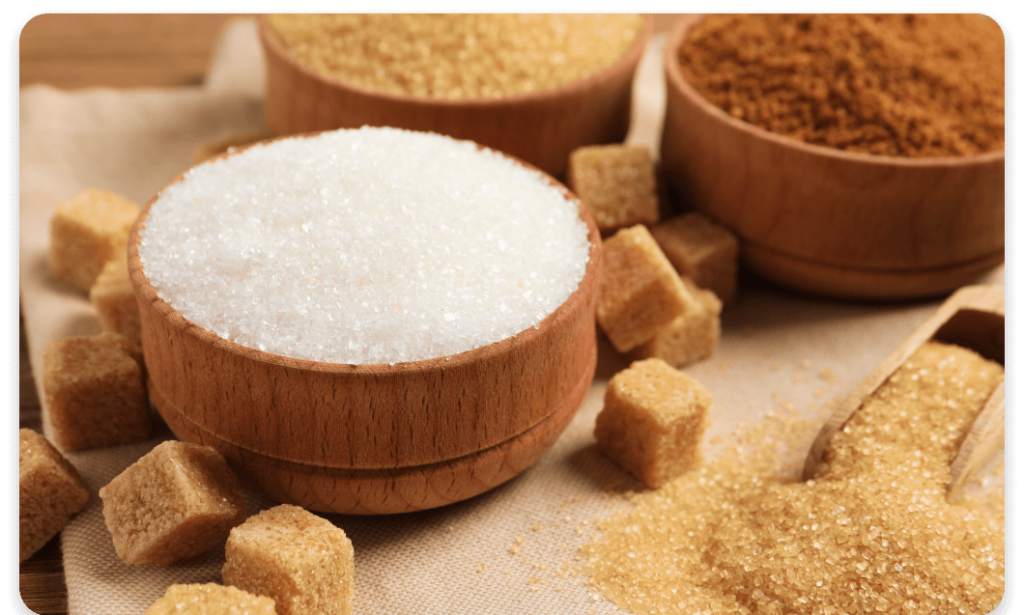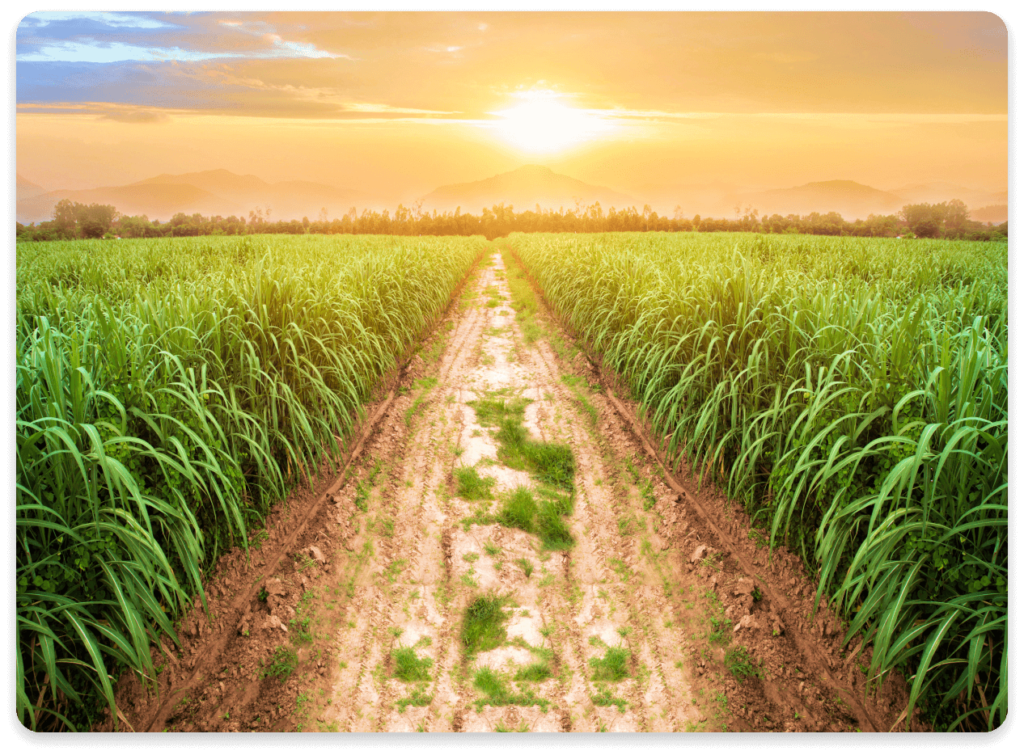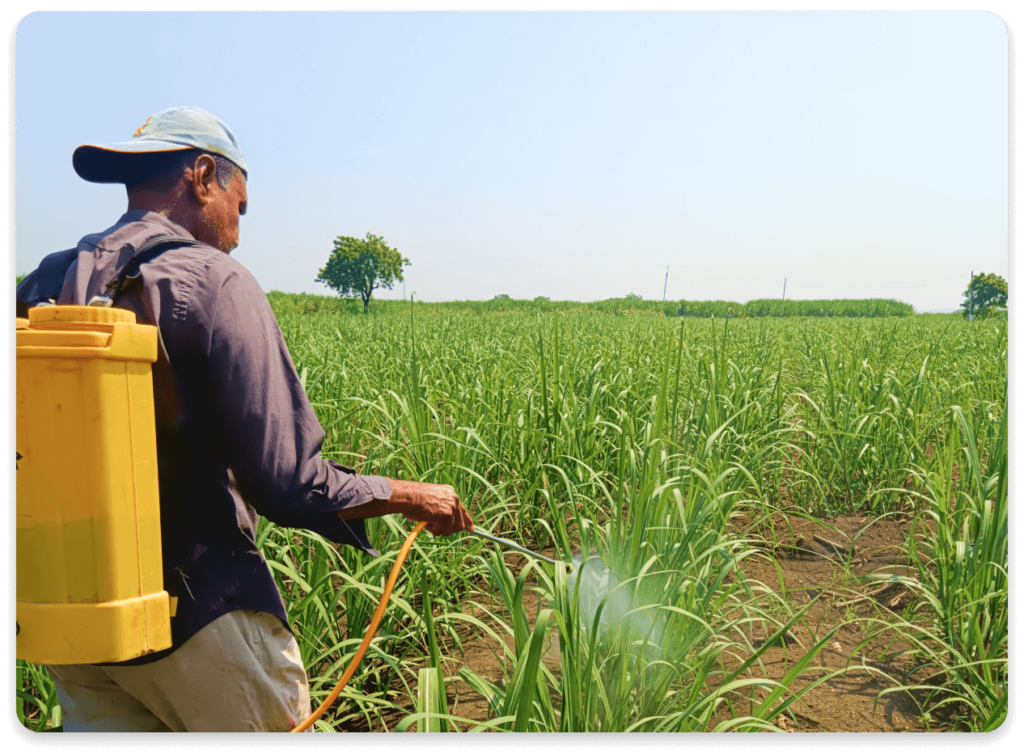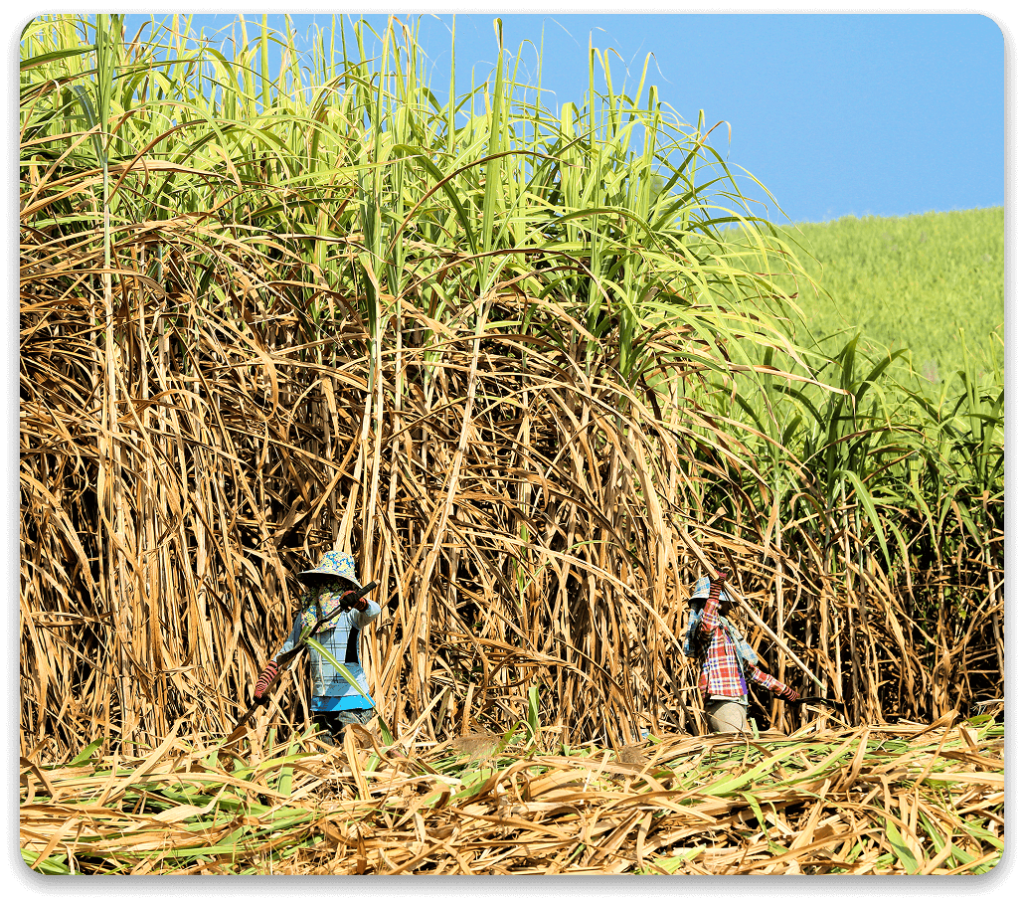

Sugarcane plants require various nutrients for their optimal growth and production such as nitrogen, phosphorus, potassium, calcium and magnesium.
Nitrogenous fertilisers like urea or ammonium sulfate are commonly applied to supplement nitrogen levels in the soil.
Phosphatic fertilisers such as single superphosphate or diammonium phosphate are commonly used to supply phosphorus to the soil.
Potassium-based fertilisers like potassium chloride or potassium sulfate are applied to meet the potassium requirements of sugarcane plants.
Lime or calcium-containing fertilisers like calcium nitrate can be used to address calcium deficiencies in the soil.
Magnesium sulfate or dolomite lime can be used to supplement magnesium levels in the soil.
Sulphur-containing fertilisers like ammonium sulfate or gypsum are used to supply sulphur to the soil.
Micronutrient-rich fertilisers or foliar sprays are utilized to address micronutrient deficiencies.
The nutrient requirements of sugarcane can vary depending on factors such as soil type, climate, cultivar and crop age. Soil testing and foliar analysis can help determine the specific nutrient needs of sugarcane, enabling targeted fertiliser applications to optimise growth, sugar yield and overall plant health.


During the initial stage of sugarcane growth, adequate soil moisture is essential for germination and establishment of the crop. Sufficient water is needed to ensure proper seed germination and initial root development.

Sugarcane plants require regular water supply during the vegetative growth stage, as this is when the majority of shoot development and leaf formation occurs. Maintaining optimal soil moisture levels is crucial to support vigorous plant growth and ensure the development of healthy and productive tillers.

The grand growth stage is when the sugarcane plants grow taller and develop thicker canes. Adequate water resources are necessary during this stage to support the expansion of canes and the accumulation of sucrose content. Water stress during this stage can negatively impact cane growth and reduce sugar yields.

Water requirement is generally low towards the latter stages of sugarcane growth. This is the ripening stage when sucrose accumulates in the canes. However, soil moisture levels should still be maintained to prevent excessive stress on the plants and ensure optimal sugar content in the harvested canes.
In areas with inadequate rainfall, or during dry periods, supplementary irrigation is required to meet the water demands of sugarcane. The frequency and amount of irrigation depend on factors such as soil moisture retention, evapotranspiration rates and the specific growth stage of the crop. Efficient irrigation methods, such as drip irrigation or furrow irrigation, can help optimise water usage and reduce water wastage.
Sugarcane growers need to consider local conditions, including climate, soil characteristics and irrigation infrastructure, to develop appropriate irrigation schedules and practices. Local agricultural extension services and irrigation experts can provide guidance on specific water requirements for sugarcane cultivation in a particular region.
District: Bardhaman
District: Samastipur
District: Deoghar
District: Cuttack
District: Nagaon
